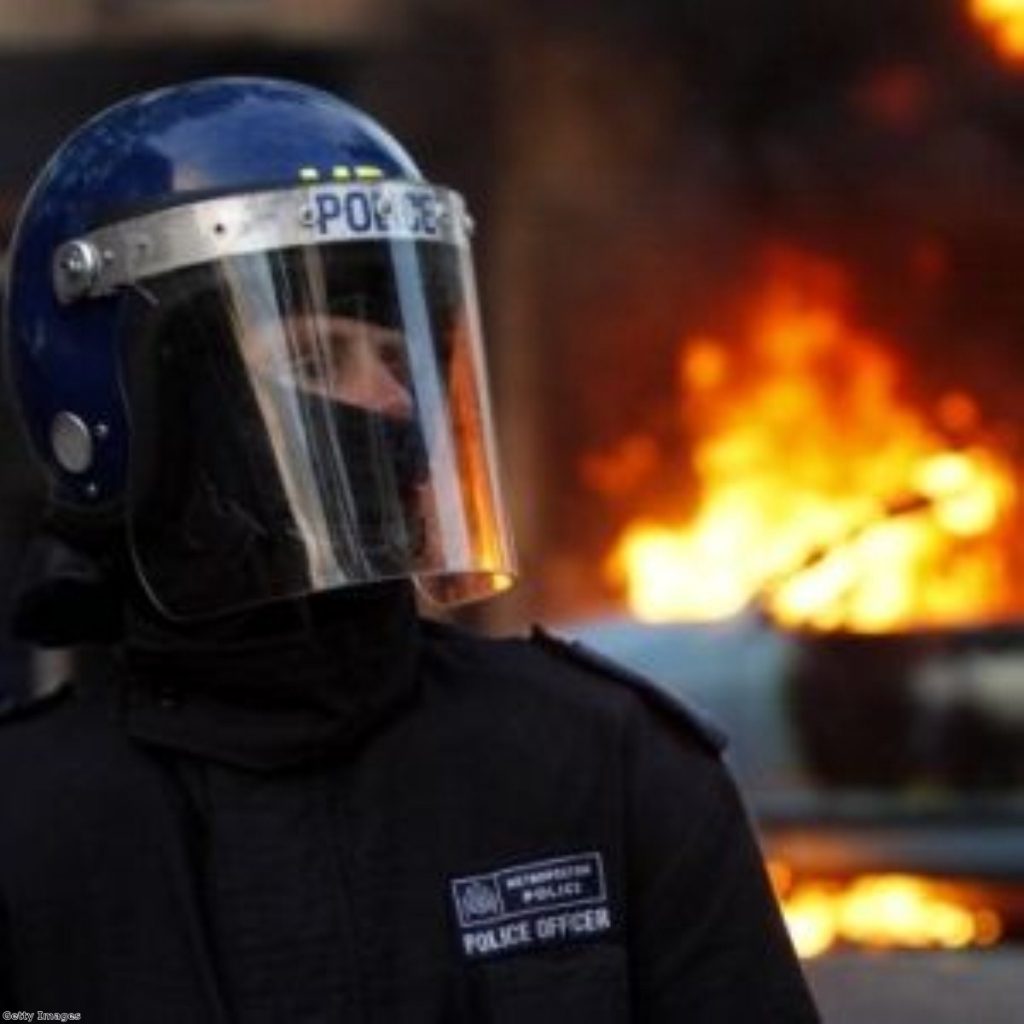Boris Johnson buys water cannon in defiance of Theresa May
Boris Johnson is to purchase water cannon for use on London's streets, despite failing to receive any authorisation from Theresa May.
Johnson's opponents said the decision to obtain the controversial weapons 'beggars belief' and called for a wider public debate on their use.
The mayor has been pushing the Home Office to approve their purchase in time for the summer, when City Hall and the Met believe violent disorder is more likely.
However, he is thought to have grown impatient with the Home Office's reluctance to grant approval and has decided to go ahead anyway.


The weapons, which have never been used before on the British mainland, cannot be deployed without prior authorisation from Theresa May and City Hall admit this approval still may not come.
The decision to buy the controversial weapons anyway is likely to increase tension between the Mayor and his biggest rival for the Tory leadership.
Johnson's U-turn was also attacked by his opponents as 'reckless'.
"The adoption of water cannon, far from controlling public disorder problems, might actually provoke and heighten protests," Liberal Democrat London Assembly member Caroline Pidgeon said.
"We also know that water cannon runs the risk of innocent people being harmed for simply taking part in a protest. The Mayor's obsession with changing the culture of British policing beggars belief. The Mayor looks set to destroy our proud tradition of policing by consent for good."
Labour accused him of trying to police on the cheap.
"Since 2010 we’ve lost 2,435 police officers and 2,441 PCSOs. Water cannon are no substitute for a visible uniformed presence on our streets," Assembly member Joanne McCartney said.
"The Mayor is trying to bounce this through and Londoners have been given virtually no chance to express their views. Such a monumental shift in policing needs a proper public debate."
The Mayor's Office for Policing and Crime will now buy three of the weapons second hand from the German federal police.
City Hall say the risk of the Home Office refusing their use is lower than the risk of losing out on the German deal altogether.
Purchase, transportation and refitting of the weapons will cost around £220,000, around a quarter of the cost of buying them new.
"The timing of this decision is driven by the enhanced risk that the water cannon, currently available to be purchased second hand are sold to another European police authority," deputy mayor for policing Stephen Greenhalgh wrote in a decision notice published today.
"The saving represented by this purchase is so significant as to justify the risk caused by the delay in the licensing process."
Greenhalgh claimed that it was essential to have the weapons available by the summer.
"Purchasing at this time considerably improves the possibility that the MPS would have the tool to deploy in the summer, when, although there are no expectations of violence, such tools are more likely to be needed."
The use of water cannon on London streets will be highly controversial.
The weapons have been used to quell anti-government protests in Turkey and have caused serious injuries to protesters in the past.
The mayor has previously opposed the introduction of water cannon, saying that he didn't want an "arms race" with protesters.
Johnson claimed earlier this year that he had changed his mind on water cannon as it was "very difficult as policy makers to say no" when the police asked him for them.
Speaking to the London Assembly in January, he said he now wanted the police to "get medieval" on rioters in future.
"When you have something kicking off like that you do not let it get under control, you get medieval immediately on those people and you come down much harder and you do not allow a mentality to arise of sheer wanton criminality, which is what you saw take place [during the London riots]."
The police have been pushing Johnson to secure the weapons.
Assistant commsioner Mark Rowley admitted in January that the police had no specific intelligence that trouble was expected by the summer but insisted that "we simply want it as soon as possible."
He also conceded that water cannon would have been of limited use in the 2011 riots.
"Most of the disorder in the riots it would not have been a sensible tactic in," he admitted to the Assembly.
A report by the Association of Chief Police Officers earlier this year claimed that the weapons would have been useful on three occasions in the past ten years.
It highlighted the London riots in 2011, the student riots at Millbank in 2010, Israeli embassy protests in 2008 and the Countryside Alliance protests in 2004.









